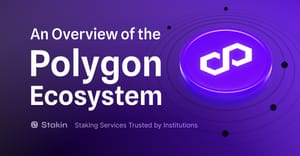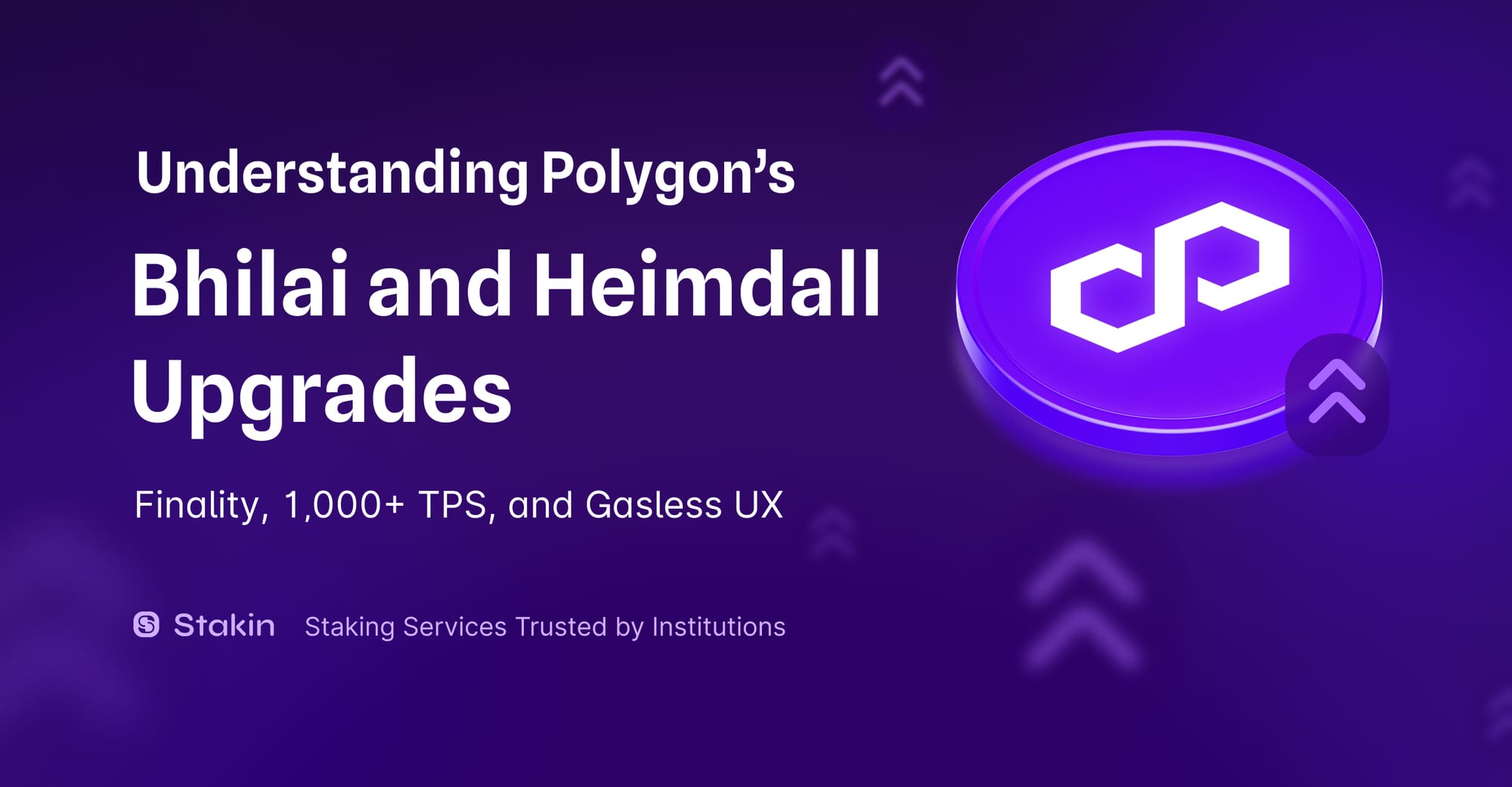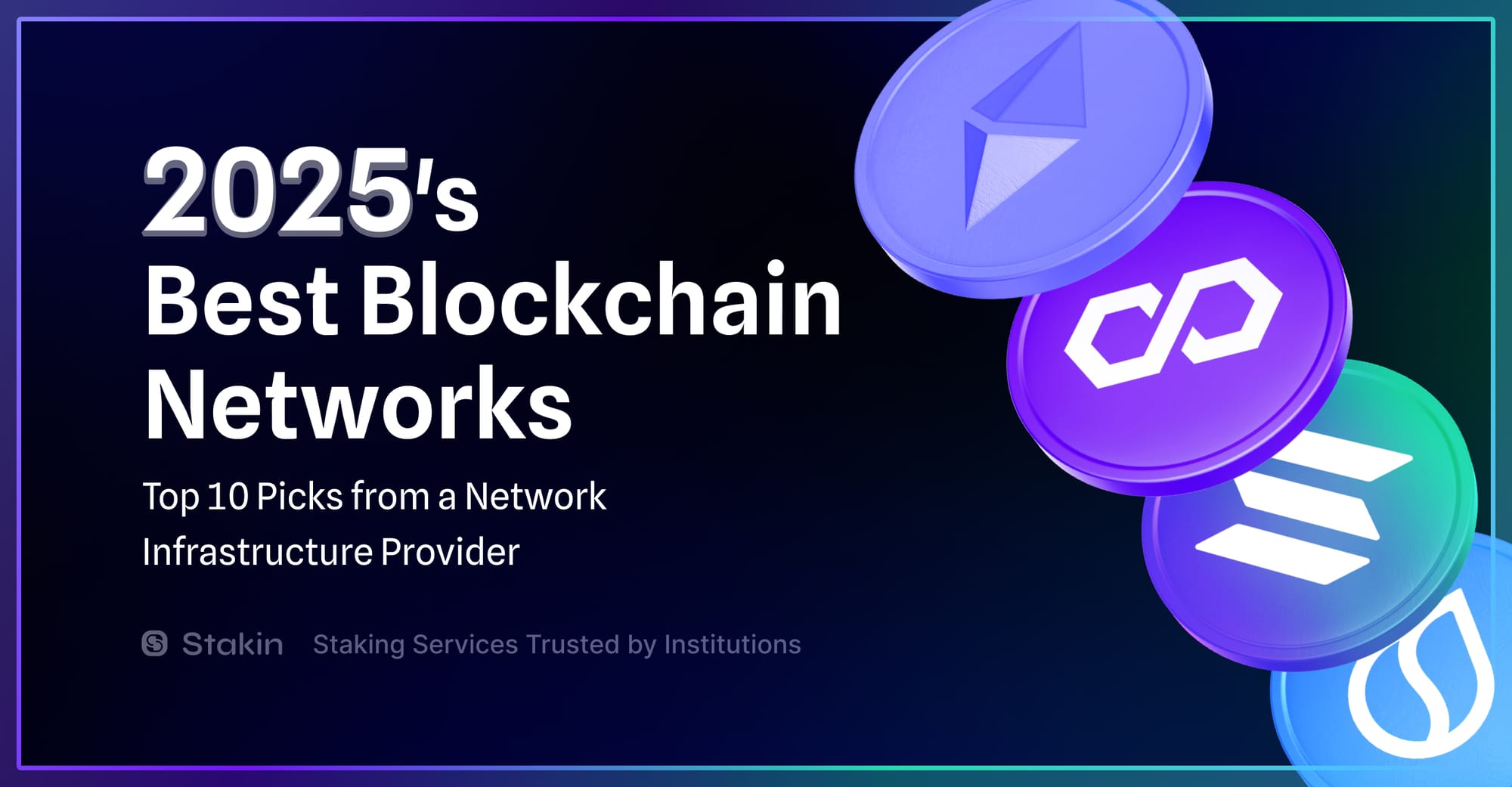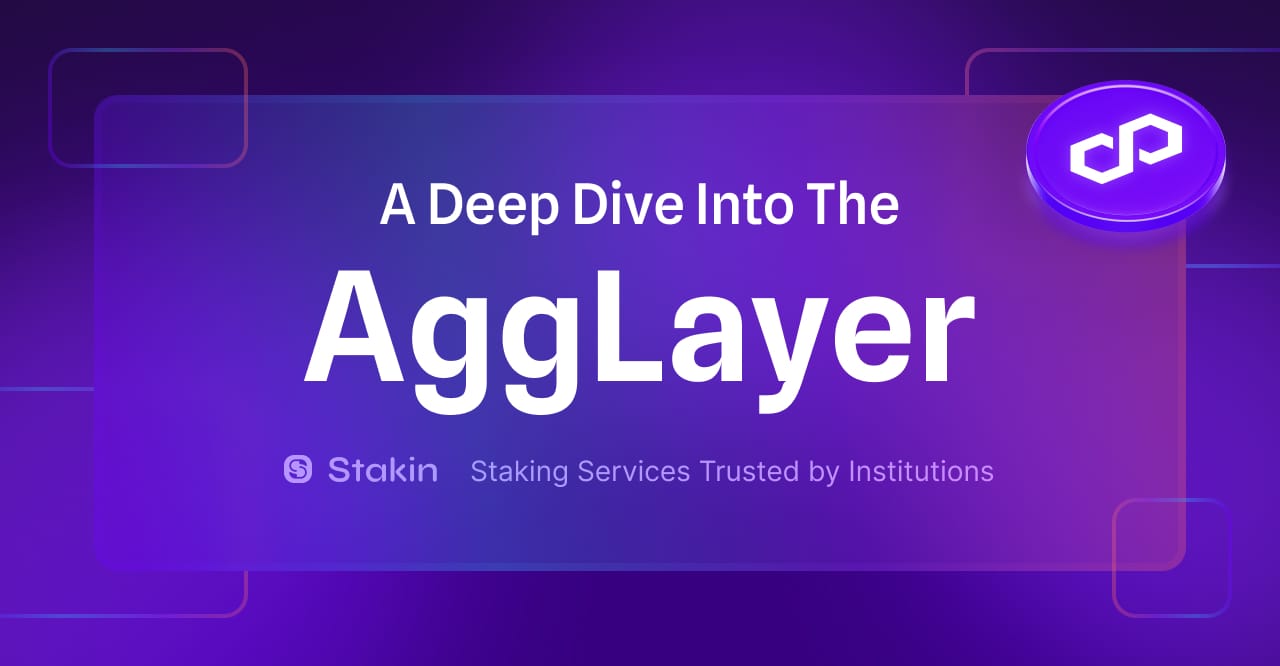Polygon is a blockchain scalability platform that provides secure, scalable, and near-instant transactions via its Layer 2 commit chain and an adapted version of Plasma (the official bridge provided by the Polygon team to bridge MATIC tokens from Ethereum to Polygon chain). Polygon is compatible with the Ethereum Virtual Machine (EVM) and thus supports Solidity as a smart contract language.
Polygon has been remarkably successful in positioning itself as an anti-L2 blockchain network, a recurrent theme in Polygon’s corporate communications strategy. In a recent Twitter post, Polygon Labs CEO Mark Boiron wrote:
Ethereum’s biggest problem is cannibalizing itself continuously via all L2s competing over devs, users, and liquidity rather than competing outside of the Ethereum ecosystem. Microeconomics 101 would tell you this is a bad strategy.
Boiron believes that the intense rivalry between Ethereum Layer-2 solutions is the ultimate problem Ethereum has been facing.
This overview will highlight Polygon’s current usage and revenue metrics. We will elaborate on the Polygon 2.0 vision. Finally, we will highlight the most promising Polygon POS projects across the most important parts of the Polygon ecosystem, including DeFi, zk-EVM, and NFTs.
Polygon usage and revenue statistics
Polygon boasts an undisrupted record of growing user base and revenue growth.
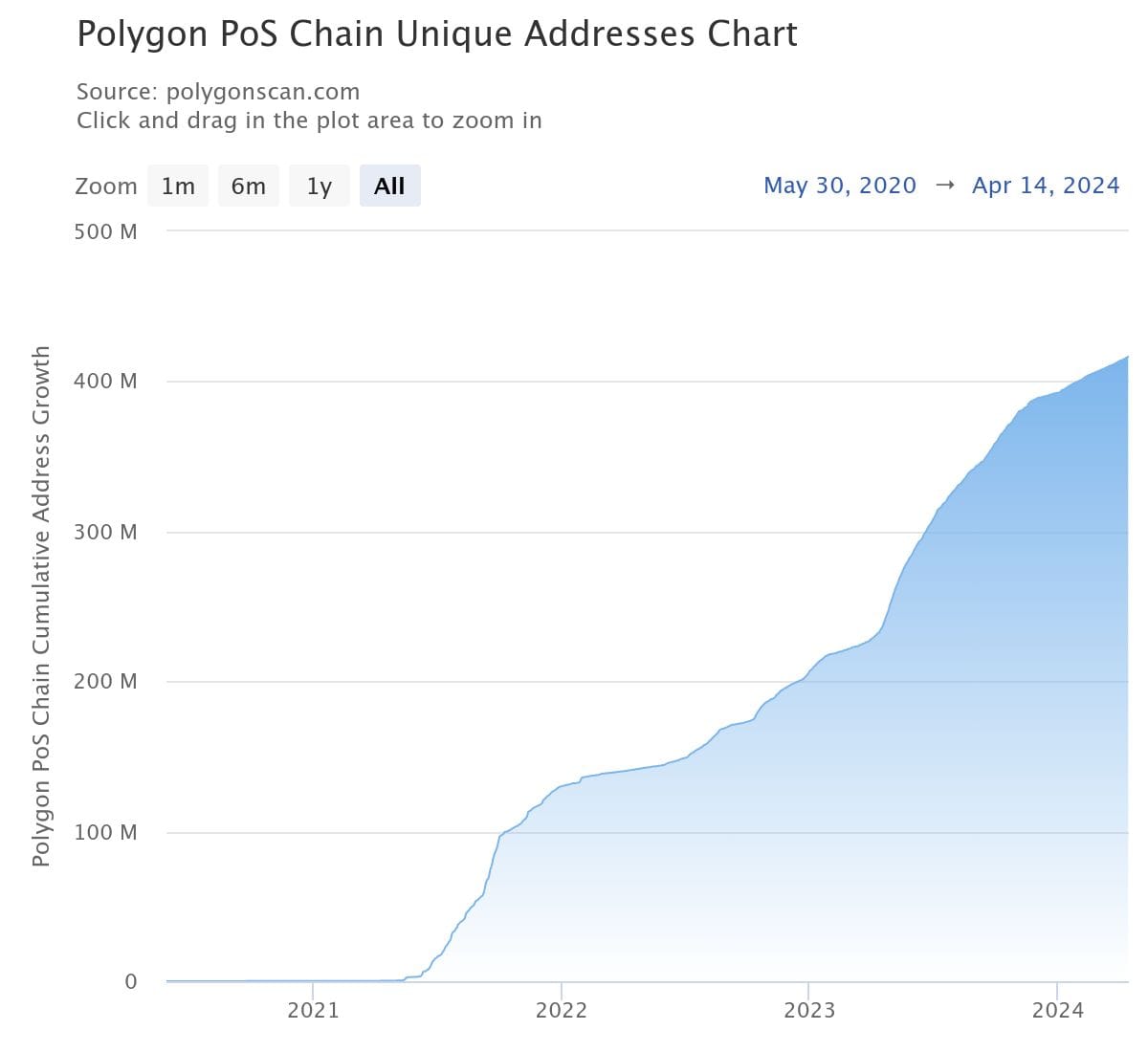
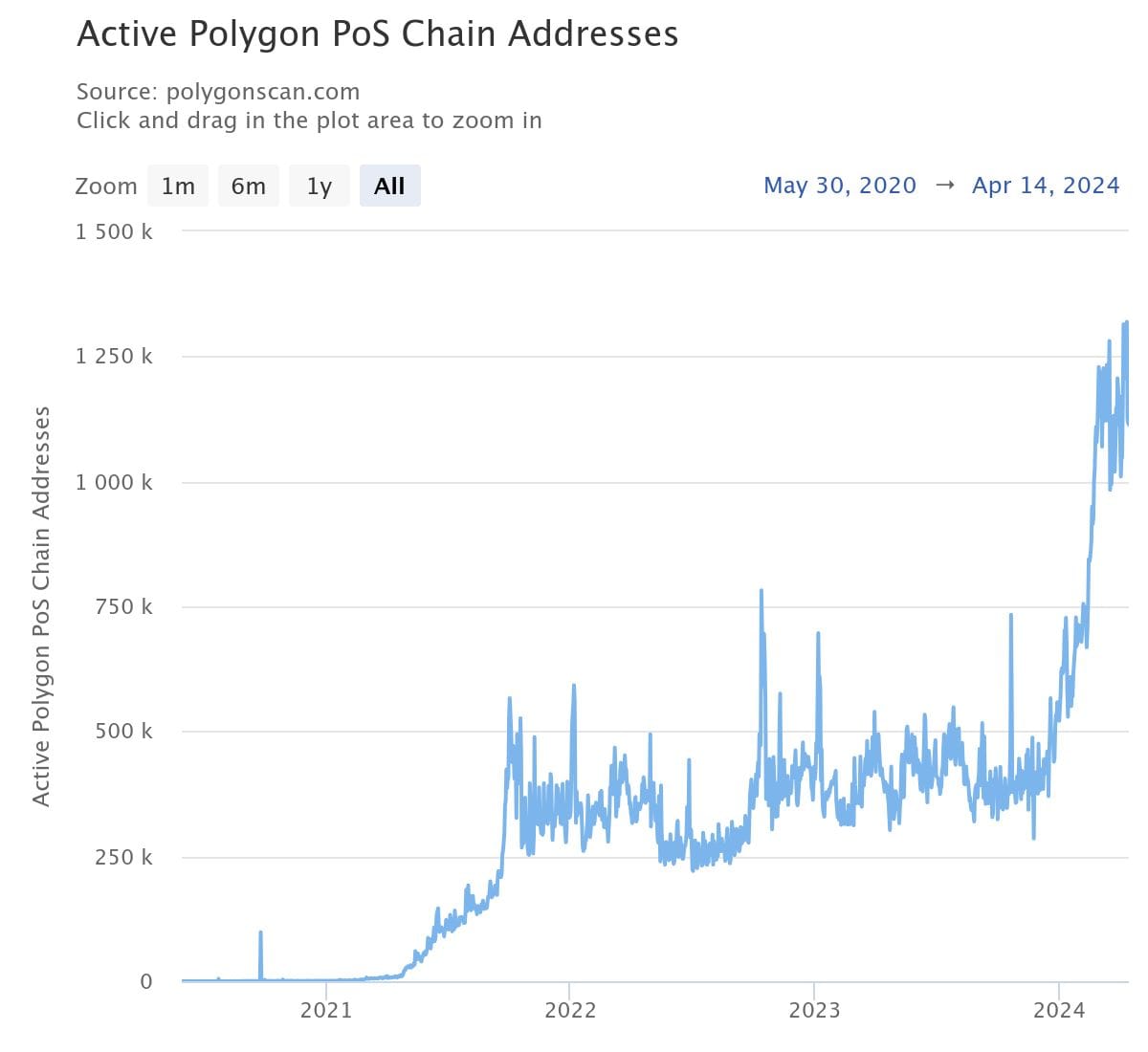
The protocol’s fee revenues also demonstrate remarkable resilience, with notable improvement in the last quarter of 2023. The total revenue for Polygon PoS for 2023 (USD + MATIC) was $37 million.

Polygon 2.0
In June 2023, Polygon Labs announced Polygon 2.0, the next phase in Polygon's evolution. Polygon 2.0 is envisioned to be a vast network of ZK-powered Layer-2 chains with unlimited scalability and seamless interoperability. This upgrade aims to address the current scaling challenges faced by Web3, where adding new chains often results in fragmented liquidity and a suboptimal user experience.
Тhree key aspects stand out in this Polygon 2.0 vision:
- The zkEVM Validium
- The Polygon SDK
- AggLayer
Polygon uses zkEVM, an EVM-equivalent L2 scaling solution that leverages cryptographic zero-knowledge (zk) proofs to bundle transactions off-chain and verify them in a batch on the Ethereum network. By contrast, Optimism, another rollup solution, focuses on so-called optimistic rollups. Unlike optimistic rollups, ZK-based chains rely on cryptographic proofs for transaction execution. The quickest way to explain the difference is that Optimistic Rollups assume all transactions are valid unless proven otherwise, while ZK-Rollups assume all transactions are false until proven valid.
In June 2023, Polygon also announced an upgrade of the Polygon POS chain to a zkEVM Validium as part of its Polygon 2.0 vision. In simple terms, Validium is yet another scaling solution for Ethereum alongside zk-rollups. In simple terms, Validium stands out by being a system that borrows from ZK-Proof rollups in terms of using validity proofs but differentiates itself by not storing data on the primary Ethereum chain.
Therefore we have the Polygon POS chain, which will be upgraded to a zkEVM Validium, and the Polygon zkEVM chain.
This is where the Polygon SDK comes in, completing the Polygon 2.0 vision of establishing a network of ZK-powered Layer 2 chains. Polygon SDK is an open-source, modular codebase that anyone can use to launch a customizable zk-powered Layer-2 on Ethereum. The Polygon SDK is a step further from so-called Polygon Supernets, which was announced in April 2022 with the same objective in mind, but without being powered by zk-technology.
You may also be interested in:
Finally, Polygon's AggLayer (Аggregation Layer) is a decentralized protocol that enables fast, secure cross-chain interactions and allows different chains to use the same native bridge.
AggLayer was announced in January 2024 and allows blockchains to "maintain full sovereignty" while enabling them to access a larger pool of liquidity, aggregated users, and dApps. The goal of AggLayer as an interoperability layer is to make users feel like the whole Polygon network is a single chain, with near-instant bridging, shared access to native Ethereum assets, and no need to hold synthetic or wrapped tokens on different chains.
We are ready to proceed with an overview of the hottest Polygon projects across the most dynamic parts of the Polygon ecosystem, such as DeFi, NFT, and zkEVM.
DeFi
Polygon POS’s Total Value Locked (TVL) currently stands at ~$936 million as of April 14. Aave is still the leading DeFi protocol on Polygon, with TVL approximating $430 million. QuickSwap follows with $98 million as of April 14, 2024.
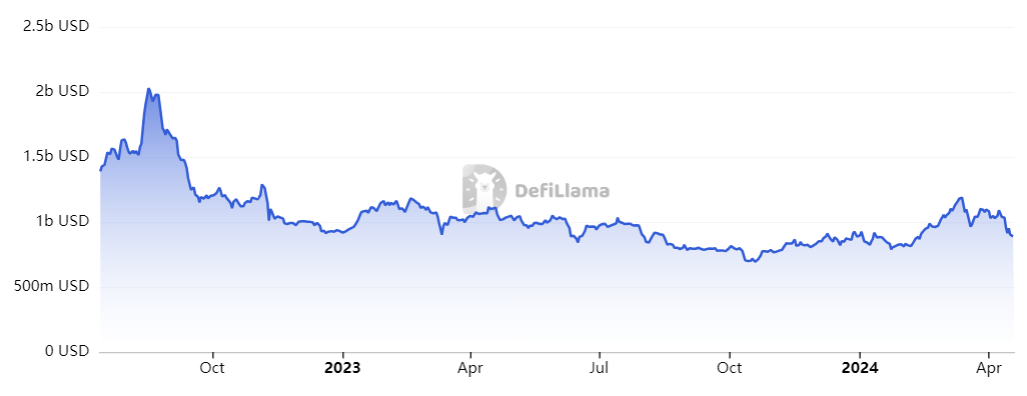
DEX volumes on Polygon marks a steady uptrend, with Uniswap leading the pack, followed by QuickSwap.
The chart below shows that Stablecoin TVL on Polygon POS also marks a notable and continuous uptrend. USDT is still the dominant stablecoin on Polygon POS. As a reminder, Circle launched native USDC on Polygon POS in October 2023.
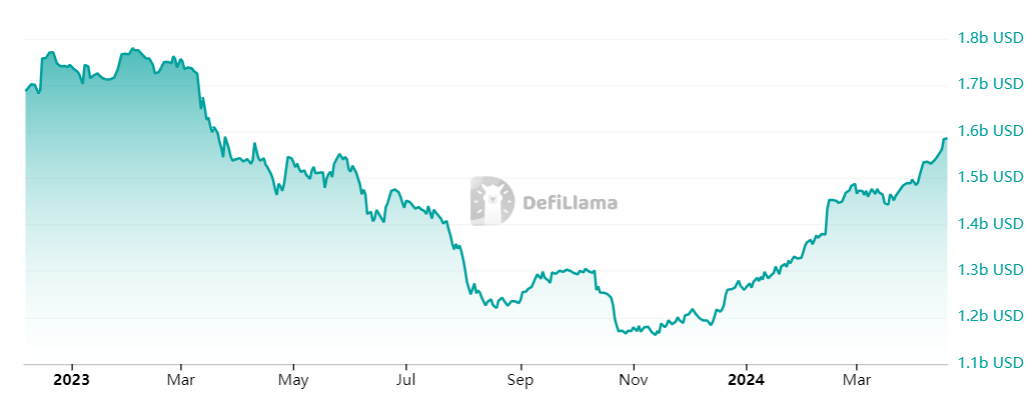
zkEVM
A zkEVM is a virtual machine setup that executes contract and state computations outside the Ethereum network. Once the zkEVM moves to a new state, it submits a ZKP of the state transition to Ethereum nodes to prove that the computations happened within the rules of the EVM.
Polygon zkEVM launched in March 2023, and ever since, leading protocols have been integrated with it, such as Balancer and Uniswap.
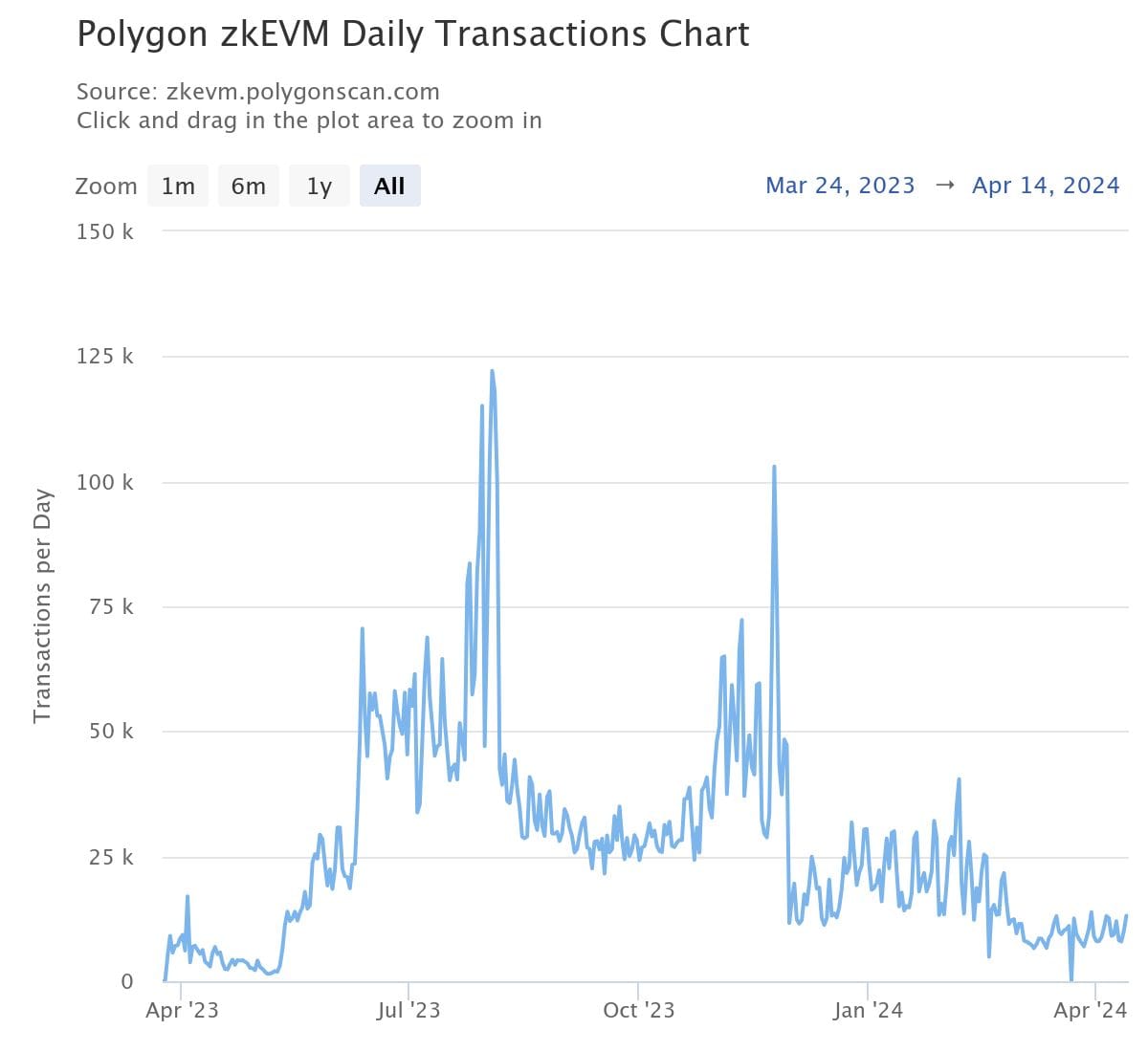
NFTs
After a stronger year-end, NFT activity on Polygon POS has declined so far into 2024. On January 01 2024, there were 8.24k NFT active addresses. This metric stood at 1.97k on April 14.
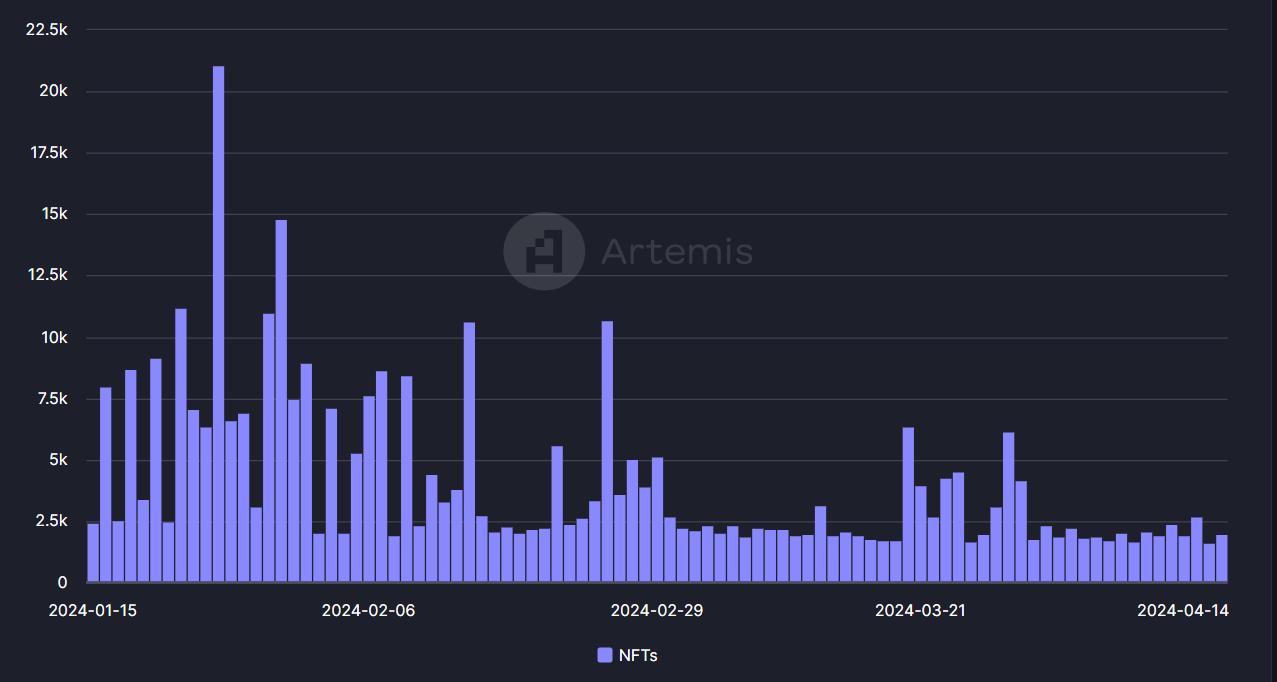
Recent popular NFT collections on Polygon include:
- The Origin Pass, Dew’s exclusive NFT collection, giving its owners a complimentary NFT for all future proprietary IPs, WL spots, NFT airdrops, and token airdrops from Dew & Dew Studio initiatives.
- Minigirl, an AI-generated NFT collection.
Final thoughts
Polygon marked a surge in activity, which became apparent in the last quarter of 2023 and has continued well into 2024. Polygon PoS's daily active addresses have been rising for several consecutive quarters.
While several retail-based aspects of its ecosystem have been lagging this 2024, Polygon has more than made up for it through a strong focus on institutional development and several institutional breakthroughs, including a collaboration between 21Shares and Polygon and HSBC’s collaboration centered around a decentralized identity solution.
In the months ahead, Polygon is set to continue developing Polygon 2.0 to enhance the network's capabilities and appeal to users and developers, with AggLayer as its shining star. The MATIC to POL integration also continues after Polygon Labs introduced the new token contract in 2023.
